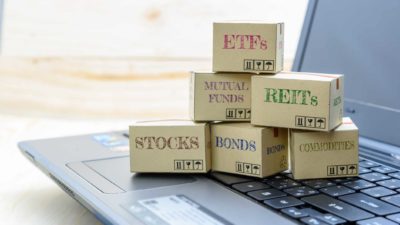A dividend yield of 6.45% is rare on the ASX share market these days. Very rare indeed. Some of the big four ASX bank shares used to offer dividend yields in this ballpark. But that was before 2020 pummeled the global banking sector. Today, you'd be lucky to get a 3% yield from a bank share.
Even an exchange-traded fund (ETF) which focuses on holding the ASX's best dividend shares can't match this yield. The Vanguard Australian Shares High Yield ETF (ASX: VHY) currently anticipates a 3.3% forward dividend, as an example.
So where would we find this monstrous 6.45% yield today? The iShares J.P. Morgan USD Emerging Markets Bond ETF (ASX: IHEB), that's where.
This ETF is a little different as it actually doesn't hold shares at all. Instead, this fund holds fixed-interest investments instead, otherwise known as bonds.
Now, I've made my views on the role of bonds in a 2020 portfolio clear in previous articles. Long story short, I have said investors should avoid holding bonds for almost any reason in 2020.
But the bonds that I was discussing then are government bonds issued by the Australian Government. The bonds that IHEB holds are a whole different kettle of fish.
Bond vs bond
IHEB also holds a collection of government bonds. But instead of being issued by governments of advanced economies like Australia or the United States, IHEB holds bonds from governments in 'emerging markets' countries. The top issuers of the bonds held in this ETF are instead from Uruguay, Russia, Argentina, Peru, Kuwait and Ecuador, among others.
These kinds of countries are not viewed as 'safe' as a country like Australia or the US for investing purposes, even if they are priced in US dollars. Thus, these bonds don't benefit from the 'risk-free' perception that Australia and the US enjoy. While that does mean investors get to enjoy far higher interest rates on their loaned capital, it also increases the risk for that investor.
For example, it's unthinkable to us Aussies that our government could 'default' on its debt, which has never occurred anyway. That makes lending money to the government a very sleep-friendly activity. But take Argentina instead. This is a country that has defaulted on its sovereign debt multiple times of the past 100 years. And when a borrower defaults, it's not good news for the creditor.
That explains why an ETF tracking Australian government bonds like the Vanguard Australian Government Bond Index ETF (ASX: VGB) currently offers a running yield of 2.78%, wheres IHEB is offering 6.45%.
Should you ignore a 6.45% yield?
Whilst I think IHEB is an interesting option to consider for dividend income, I think investors should be very cautious with this investment. There's a small chance that any of the countries that issue the bonds that make up this ETF could default on their debts or otherwise have other difficulties funding their bond obligations. And that could in turn result in a permanent capital loss.
If income is an important investing objective of your portfolio, I think there's a good case for a small allocation to this ETF. But I wouldn't be putting any capital in that you can't afford to lose either.








